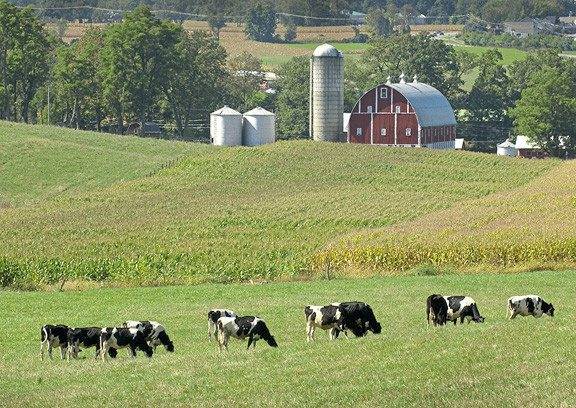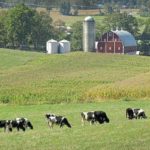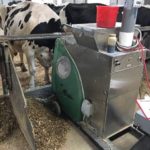For scientists studying climate change, belching cows are no laughing matter.
Penn State researchers say they have found a way to reduce methane emissions from burping dairy cows, which constitutes 5% of the greenhouse gases generated in the United States.
The research team, led by Alexander Hristov, Penn State distinguished professor of dairy nutrition, released its findings in the Journal of Dairy Science, concluding that a certain feed supplement can reduce methane emissions by about 25%.
The supplement, known as 3-Nitrooxypropanol, or 3-NOP, “inhibits an enzyme that is crucial to the final stage of methane synthesis in a cow’s rumen (fore-stomach)” and, thus, reduces the cow’s methane production, according to Penn State News.
Methane is a natural byproduct of digestion in ruminants and is released into the air through belching — not flatulence, as is often stated. The average dairy cow belches approximately 350 pounds of the potent greenhouse gas each year, according to the study.
As the primary component of natural gas, methane accounts for about 10% of all U.S. greenhouse gas emissions from human activities, according to the EPA.
The Penn State study, conducted over 15 weeks on 56 lactating dairy cows, also examined 3-NOP’s influence on rumen fermentation, lactational performance, the sensory properties of milk and the resumption of ovarian cycles.
“3-NOP is the only substance that has worked significantly in reducing enteric (intestinal) methane in cattle and not had unacceptable effects on milk production or quality,” Hristov said. “We have tried many things in recent years — including essential oils, oregano and seaweeds — and they either have been ineffective in the long term or need to be investigated further.”
Compared with the control group, cows ingesting 3-NOP decreased their daily methane emissions by 26%, methane yield by 21% and methane emission intensity by 25%, according to Penn State News.
The product 3-NOP is manufactured by DSM Nutritional Products but has not been approved for use in the United States.
“Do we want to look at this? I definitely think that we should, and if there is a way that we can reduce emissions without affecting profitability on the farm, we should pursue it,” Hristov said.













